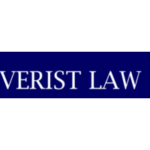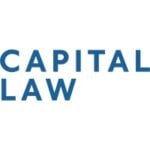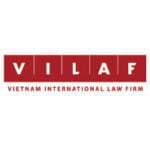-
Please briefly describe the regulatory framework and landscape of both equity and debt capital market in your jurisdiction, including the major regimes, regulators and authorities.
The main capital markets legislation applicable to issuers whose shares are listed and admitted to trading on a regulated market within the meaning of Article 1(31) of the law of 30 May 2018 on markets in financial instruments, as amended (“MiFID II Law”) is:
- the law of 24 May 2011 relating to the exercise of certain shareholder rights in general meetings of listed companies, as amended (“Shareholders’ Rights Law”);
- the law of 11 January 2008 on transparency requirements for issuers, as amended (“Transparency Law”) implementing the EU Transparency Directive (2004/109/EC);
- the regulation (EU) 2017/1129 of the European Parliament and of the Council of 14 June 2017 on the prospectus to be published when securities are offered to the public or admitted to trading on a regulated market (“EU Prospectus Regulation”) and the law of 16 July 2019 on prospectuses for securities (“Prospectus Law”);
- the law of 19 May 2006 on takeover bids, as amended (“Takeover Law”); and
- the regulation (EU) No 596/2014 of the European Parliament and of the Council of 16 April 2014 on market abuse (market abuse regulation), as amended (“EU MAR”) and the law of 23 December 2016 on market abuse, as amended (“Market Abuse Law”).
In addition, the Luxembourg financial regulatory authority, the Commission de Surveillance du Secteur Financier (CSSF), regularly publishes circulars, annual reports and FAQs on various capital markets-related topics.
An issuer is also subject to the Rules and Regulations of the Luxembourg Stock Exchange (LuxSE), which lay down the requirements for listing and admission to trading.
-
Please briefly describe the common exemptions for securities offerings without prospectus and/or regulatory registration in your market.
The main capital markets legislation applicable to issuers whose shares are listed and admitted to trading on a regulated market within the meaning of Article 1(31) of the law of 30 May 2018 on markets in financial instruments, as amended (“MiFID II Law”) is:
- the law of 24 May 2011 relating to the exercise of certain shareholder rights in general meetings of listed companies, as amended (“Shareholders’ Rights Law”);
- the law of 11 January 2008 on transparency requirements for issuers, as amended (“Transparency Law”) implementing the EU Transparency Directive (2004/109/EC);
- the regulation (EU) 2017/1129 of the European Parliament and of the Council of 14 June 2017 on the prospectus to be published when securities are offered to the public or admitted to trading on a regulated market (“EU Prospectus Regulation”) and the law of 16 July 2019 on prospectuses for securities (“Prospectus Law”);
- the law of 19 May 2006 on takeover bids, as amended (“Takeover Law”); and
- the regulation (EU) No 596/2014 of the European Parliament and of the Council of 16 April 2014 on market abuse (market abuse regulation), as amended (“EU MAR”) and the law of 23 December 2016 on market abuse, as amended (“Market Abuse Law”).
In addition, the Luxembourg financial regulatory authority, the Commission de Surveillance du Secteur Financier (CSSF), regularly publishes circulars, annual reports and FAQs on various capital markets-related topics.
An issuer is also subject to the Rules and Regulations of the Luxembourg Stock Exchange (LuxSE), which lay down the requirements for listing and admission to trading.
-
Please describe the insider trading regulations and describe what a public company would generally do to prevent any violation of such regulations.
According to Article 7(1)(a) of the EU MAR, “inside information” is defined as information of a precise nature, relating directly or indirectly to one or more issuers or financial instruments, which has not been made public and which, if made public, would be likely to have a significant effect on the price of those financial instruments. According to Article 14 of the EU MAR, a person must not:
- engage or attempt to engage in insider dealing – that is, use inside information by acquiring or disposing of, for its own account or for the account of a third party, directly or indirectly, financial instruments to which that information relates;
- recommend that another person engage in insider dealing or induce another person to engage in insider dealing; or
- unlawfully disclose inside information.
Certain legitimate behaviours are exempted, such as actions by market makers in the normal course of their function, or transactions executed in discharge of a pre-existing obligation in good faith (Article 9 EU MAR).
Issuers must inform the public as soon as possible of inside information which directly concerns them. Disclosure must be made in a manner that enables fast access and complete, correct, and timely assessment by the public. However, disclosure may be delayed if immediate disclosure would prejudice the issuer’s legitimate interests, provided that the delay is not likely to mislead the public and confidentiality can be ensured (Article 17 EU MAR).
To prevent violations of insider trading regulations, public companies in Luxembourg shall generally implement certain measures such as the following:
1. Insider Lists
Issuers and any person acting on their behalf or account must draw up and maintain insider lists of all persons who have access to inside information and who are working for them under a contract of employment or otherwise. These lists must be updated promptly and provided to the CSSF upon request. Insider lists must be retained for at least five years (Article 18 EU MAR).
2. Managers’ Transactions
Persons discharging managerial responsibilities (PDMRs) and persons closely associated with them must notify the issuer and the CSSF of every transaction conducted on their own account relating to the issuer’s shares, debt instruments, or related derivatives. Notifications must be made within three business days after the date of the transaction. The issuer must then make this information public within two business days of receipt (Article 19 EU MAR). As from 30 May 2022, any notification of managers’ transactions is required to be filed with the CSSF through eRIIS (form “HOS-2” for holders of securities and form “MAR-2” for issuers of securities).
3. Internal Procedures
Issuers must establish and maintain procedures to ensure that inside information is disclosed to the market in accordance with legal requirements, and that any delay in disclosure is properly documented and justified. In addition, companies should foster a strong compliance culture by implementing effective whistleblowing channels. These channels should allow employees and other stakeholders to confidentially report actual or suspected violations of market abuse regulations.
Clear internal policies, regular training, and a culture of transparency are essential to support these measures and ensure compliance with the EU MAR.
-
What are the key remedies available to shareholders of public companies / debt securities holders in your market?
Shareholders’ legal remedies against the issuer are generally limited. A shareholder may bring a claim for breach of contract or invoke extra-contractual (tort) liability under articles 1382 and 1383 of the Luxembourg Civil Code. Direct actions against directors or management are possible in cases of breach of law or the articles of association, or for personal damage suffered due to fault. Criminal offences may also give rise to enforcement actions. Directors are liable to the company for mismanagement, and shareholders may, under certain conditions, bring actions on behalf of the company. Please also refer to the response to question 10.
Bondholders benefit from a specific regime. They are grouped by law into a collective body (masse) represented by one or more representatives, who may take legal action on behalf of all bondholders, particularly in cases of default or breach of bond terms. Bondholders have rights to information, to attend shareholder meetings (with consultative voice), and to participate and vote in bondholders’ meetings. The bondholders’ assembly can decide on modifications to bond terms, with such decisions binding on all bondholders of the issue. In case of non-payment or breach, bondholders may take individual or collective legal action, including claims for payment or damages, and may seek annulment of unlawful or irregular decisions of the bondholders’ assembly.
-
Please describe the expected outlook in fund raising activities (equity and debt) in your market in 2025.
In 2025, Luxembourg is expected to remain a leading hub for both equity and debt fund raising. The LuxSE offers a flexible and efficient regulatory environment, with streamlined listing and prospectus regimes that attract a broad range of issuers. Equity fund raising is likely to stay robust, supported by efficient approval processes and international investor interest. Debt issuance, particularly in green, social, and sustainability-linked bonds, is also expected to remain strong, reflecting continued demand for diversified and ESG-focused products. Overall, the outlook is positive, with sustained or increased activity anticipated across both equity and debt markets.
-
What are the essential requirements for listing a company in the main stock exchange(s) in your market? Please describe the simplified regime (if any) for company seeking a dual-listing in your market.
A primary listing of securities following an initial public offering (IPO) on the Bourse de Luxembourg (BdL) and/or the Euro MTF markets may be obtained subject to certain listing conditions enumerated under the Grand-Ducal Regulation of 13 July 2007 relating to the official listing for financial instruments, as amended (“Grand-Ducal Regulation”) and the Rules and Regulations of the LuxSE. These listing criteria may vary depending on the type of securities and are summarised as conditions applicable to:
- the issuer (eg, its legal position; minimum size of at least €1 million; period of existence of at least three years prior to the application for admission to listing);
- shares (eg, legal position; negotiability; physical form; listing of shares of the same category); and
- bonds (eg, legal position; negotiability; physical form; listing of bonds of a minimum amount of €200,000).
An application for admission to trading of securities on one of the securities markets operated by the LuxSE is also deemed to be an application for admission to its official list.
The prior publication of a prospectus is a sine qua non in order to obtain a primary listing on the BdL market and/or the Euro MTF market. The prospectus must be prepared and approved in accordance with:
- the EU Prospectus Regulation and Part II of the Prospectus Law, which implements the EU Prospectus Regulation, if the securities offered:
- are covered by the EU Prospectus Regulation; and
- relate to an offering and admission to a regulated market;
- Part III of the Prospectus Law (alleviated prospectus regime) in relation to securities not covered by the EU Prospectus Regulation; or
- Part IV of the Prospectus Law in case of an admission to the Euro MTF market.
The obligation to publish a prospectus does not apply in cases as set out in question 2.
A prospectus that is approved and notified in accordance with the EU Prospectus Regulation for admission to trading on an EU regulated market may validly be used for an admission to trading on a market operated by the LuxSE. Hence, the CSSF must not undertake any approval or administrative procedures relating to prospectuses and supplements approved by the competent authorities of other EU member states. Nevertheless, the admission to trading on the Euro MTF market of securities already admitted to trading on an EU regulated market other than the regulated market of the LuxSE is subject to certain conditions based on the Rules and Regulations of the LuxSE – for example:
- the LuxSE must receive a confirmation stating that the ongoing obligations for trading on that other EU regulated market have been fulfilled; and
- the issuer must publish a notice stating where the most recent prospectus and information can be obtained.
-
Are weighted voting rights in listed companies allowed in your market? What special rights are allowed to be reserved (if any) to certain shareholders after a company goes public?
In Luxembourg, weighted voting rights in listed companies within the same share class are generally not allowed. The principle of “one share, one vote” is typically upheld, meaning that each share in a listed company entitles the holder to one vote. This ensures that voting power is proportionate to shareholding, maintaining fairness and equality among shareholders.
While weighted voting rights are not permitted, Luxembourg law offers flexibility in structuring different share classes and attaching various rights to them. Companies can issue several classes of shares with different rights, which can be particularly useful in private equity, venture capital, and securitisation structures.
After a company goes public, it is possible to maintain or create special rights for certain shareholders through the issuance of different share classes. For example, founders or early investors may hold a class of shares with enhanced economic rights (such as preferential dividends or liquidation preferences) or, in some cases, limited voting rights (such as veto rights on specific matters if provided for in the articles). For companies listed on a regulated market, however, the scope for reserving special rights is more restricted. The principle of equal treatment of shareholders is fundamental. Any special rights must be set out in the articles of association and disclosed in the prospectus and ongoing reporting.
-
Is listing of SPAC allowed in your market? If so, please briefly describe the relevant regulations for SPAC listing.
A SPAC is specifically created to raise capital via an IPO, with the intention of subsequently merging with or acquiring a target operating company. The SPAC itself has no commercial operations at the time of listing; its sole purpose is to identify and combine with a suitable target within a set timeframe.
The LuxSE has published a set of recommendations for SPAC listings, which, although not mandatory, are widely regarded as best practice. These recommendations include the following:
- Funds raised by SPACs should be placed in an escrow account with a regulated financial institution and issuers should document an order of priority for outgoing payments.
- The issuer should grant redemption rights to the SPAC shareholders and describe the conditions under which the rights can be exercised.
- The majority of the shareholders should approve the business combination with the target company in a general meeting (de-SPAC process) and the issuer should provide the shareholders with the information necessary to make an informed decision about the exercise of their redemption rights.
- In the prospectus accompanying the admission to trading, the issuer should describe its business strategy to deliver insights on the target industries and geographies where it seeks acquisition opportunities.
- The timeframe for the consummation of the business combination should be defined and limited in time.
These recommendations are designed to enhance investor protection, promote transparency, and ensure that the interests of shareholders are prioritised throughout the SPAC lifecycle, from IPO to the eventual merger with a target entity.
-
Please describe the potential prospectus liabilities in your market.
The Prospectus Law prescribes that specific persons can be held liable for damages due to false or misleading information contained in a prospectus or the omission of material information. In particular, in accordance with Article 5 of the Prospectus Law, such persons are:
- the issuer;
- the offeror;
- the person seeking admission to trading on a regulated market or MTF; and
- the guarantor.
The aforementioned person(s) bear(s) civil liability, which arises under the extra-contractual liability of the Civil Code (Articles 1382 and 1383). As an exception to the above, no civil liability should be attached to any person solely on the basis of the prospectus summary, including any translation thereof, unless:
- it is misleading, inaccurate or inconsistent with the relevant parts of the prospectus; or
- it does not provide, when read together with the other parts of the prospectus, key information in order to aid investors when considering whether to invest in such securities.
The Commission de Surveillance du Secteur Financier (CSSF) may impose administrative sanctions and fines on any persons involved if false information is published, if there is obstruction of the CSSF’s supervisory powers, non-compliance with its orders, or the provision of inaccurate or incomplete information under the Prospectus Law. For natural persons, administrative fines can reach up to EUR 700,000, and additional fines between EUR 250 and EUR 250,000 may apply for obstructing the CSSF’s investigatory powers or failing to comply with its requirements.
Criminal liability arises for any person who knowingly conducts a public offer of securities in Luxembourg without an approved prospectus where required. Fines for legal persons range from EUR 251 to EUR 5,000,000, and for natural persons from EUR 500 to EUR 700,000. Criminal liability requires intentional conduct, and any individual involved may be held liable depending on their participation and intent.
-
Please describe the key minority shareholder protection mechanisms in your market.
Luxembourg law protects minority shareholders through several key mechanisms. Shareholders holding at least 5% of the capital in a listed company can add items to the general meeting agenda. Those with at least 10% of the capital or voting rights can request information on management, seek the appointment of experts if management does not respond, and request the convening or adjournment of a general meeting. Shareholders with at least 10% of the votes at the meeting that resolved on discharge may bring a minority action against directors or management for mismanagement, provided they did not vote in favour of the discharge. Any majority decision that is contrary to the company’s interest and solely benefits the majority to the detriment of the minority can be challenged for abuse of majority, with possible annulment and damages. Equal treatment of shareholders in equivalent situations is a fundamental principle, especially in listed companies. In addition, if a shareholder acquires at least 95% of the voting rights in a listed company, they can require minority shareholders to sell their shares (squeeze-out), and minority shareholders can require the majority to buy their shares (sell-out), both at a fair price.
-
What are the common types of transactions involving public companies that would require regulatory scrutiny and/or disclosure?
Common transactions involving public companies in Luxembourg that require regulatory scrutiny or disclosure include those triggering obligations under the Transparency Law, such as the publication and filing of annual and half-yearly financial reports, and ongoing disclosures relating to changes in major shareholdings, transactions involving own shares, changes in the total number of voting rights and capital, and changes in the rights attaching to the various classes of shares, including changes in the rights attaching to any derivative securities issued by the issuer that provide access to the issuer’s shares (please also refer to question 13). Additionally, the EU MAR requires prompt disclosure of inside information and reporting of transactions by persons discharging managerial responsibilities and persons closely associated with them (please also refer to question 3). Public takeover bids are subject to the Takeover Law, which imposes specific requirements for the announcement, conduct, and disclosure of such bids, including informing the market and authorities at key stages.
-
Please describe the scope of related parties and introduce any special regulatory approval and disclosure mechanism in place for related parties’ transactions.
The scope of related parties in Luxembourg is defined by the Shareholders’ Rights Law and International Accounting Standard 24 (IAS 24). Under these frameworks, related parties include individuals, entities, and close family members who have control, joint control, or significant influence over the company. The Shareholders’ Rights Law adopts the IAS 24 definition. However, a related party transaction must therefore be assessed from two perspectives: the IAS 24 perspective and the Shareholders’ Rights Law perspective.
According to the Shareholders’ Rights Law, for any material transaction with a related party, prior approval from the management body is required, and the transaction must be publicly disclosed by the company no later than at the time of its conclusion. The disclosure must include the nature of the relationship, the name of the related party, the date and value of the transaction, and any other information necessary to assess whether the transaction is fair and reasonable for the company and its non-related shareholders, including minority shareholders.
These approval and disclosure requirements do not apply to transactions conducted in the ordinary course of business and on normal market terms. For such transactions, the company’s administrative body must implement an internal procedure to periodically verify that these conditions are met, and related parties must not participate in this assessment.
-
What are the key continuing obligations of a substantial shareholder and controlling shareholder of a listed company?
Shareholders of issuer whose shares are admitted to trading on a regulated market and for which Luxembourg is the home Member State and to which voting rights are attached, shall notify the issuer and the CSSF when their shareholding reaches, exceeds of falls below the thresholds of 5%, 10%, 15%, 20%, 25%, 33.33%, 50% and 66.66% of the total shareholding of the company.
The notification requirement by a shareholder to the issuer also apply to a natural person or legal entity, (i) to the extent it is entitled to acquire, to dispose of or to exercise voting rights in any of the specific cases set out in article 9 of the Transparency Law and/or (ii) who holds, directly or indirectly, specific financial instruments as set out in article 12 of the Transparency Law. Exemptions may apply under certain circumstances in case of clearing and settlement, market making, stabilisation and voting rights held in a trading book.
The notification to the issuer shall be effected as soon as possible, but not later than six trading days in case of a transaction and four trading days in case the breakdown of voting rights has changed. The information to be notified by the shareholder to the issuer in accordance with the above shall at the same time be filed with the Luxembourg financial regulatory authority, the CSSF.
Furthermore, if a shareholder, either individually or in concert with others, gains control by acquiring at least 33⅓% of the voting rights, they are obligated to extend a mandatory takeover bid to all remaining shareholders for all outstanding shares, as detailed in question 15 below.
-
What corporate actions or transactions require shareholders’ approval?
Approval of shareholders is necessary for any fundamental changes to the company’s structure, capital, and governance, as well as for significant corporate transactions such as mergers, divisions, and liquidations. Corporate actions requiring shareholder approval include, for example, amending the company’s articles of association, increasing or decreasing the share capital, creating authorised share capital, allocating results and distributing dividends, appointing and/or renewing the mandates of members of the board of directors (in a one-tier structure) or members of the supervisory board (in a two-tier structure), granting discharge to directors (one-tier structure), supervisory board and management board members (two-tier structure), and appointing and/or renewing the mandate of the company’s auditor. The quorum and majority requirements for passing shareholders’ resolutions depend on the type of general meeting of shareholders, which may be an annual general meeting, ordinary general meeting, or extraordinary general meeting.
-
Under what circumstances a mandatory tender offer would be triggered? Is there any exemption commonly relied upon?
A mandatory tender offer is triggered under article 5(1) of the Takeover Law when a natural or legal person, as a result of its own acquisition or the acquisition by persons acting in concert with it, obtains shares in a company which, when added to any existing holdings (including those of persons acting in concert), directly or indirectly confer at least 33 1/3% of the voting rights in that company (a “Mandatory Bid”).
The CSSF constantly reminds that, as a general rule, the two conditions set out in article 5 (1) of the Takeover Law, i.e. the acquiring of shares and the obtaining of control, must be cumulatively met for the Takeover Law to apply. Where a shareholder is only strengthening control, which it already had before, the Takeover Law does not become relevant. In case of changes to a shareholding structure, the CSSF considers the nature of the change, i.e. whether it was a material change of the control situation on a given company or a mere formal change in the shareholder structure not affecting minority shareholders. In case of formal changes the CSSF is of the opinion that a transaction does not trigger an obligation to launch a Mandatory Bid.
-
Are public companies required to engage any independent directors? What are the specific requirements for a director to be considered as “independent”?
Public companies whose shares are admitted to trading on the regulated market of the LuxSE are required to include an appropriate number of independent directors on their board, but in any event not fewer than two. This requirement is set out in the X Principles of Corporate Governance of the LuxSE (“X Principles”), which serve as the primary corporate governance code for listed companies in Luxembourg. The X Principles set out comprehensive and detailed criteria for assessing independence, focusing on the absence of significant business, financial, or personal relationships with the issuer, its controlling shareholders, or its management that could impair objective judgement. Independence is assessed not only on the basis of formal relationships but also on the director’s ability to exercise independent analysis, decision, and action at all times. The board must ensure that these criteria are applied in substance, and the company must provide transparent disclosure regarding the independence of its directors.
-
What financial statements are required for a public equity offering? When do financial statements go stale? Under what accounting standards do the financial statements have to be prepared?
For a public equity offering in Luxembourg, the EU Prospectus Regulation requires the inclusion of audited financial statements covering the last two financial years, or for the shorter period during which the issuer has been in operation. These financial statements must include at least the balance sheets, profit and loss accounts, cash flow statements, and explanatory notes, together with the audit report for the most recent year.
Under the Rules and Regulations of the LuxSE and the Grand-Ducal Regulation, issuers are generally required to have published or filed audited annual accounts for the three financial years preceding their application for admission to trading. LuxSE may grant a waiver from the three-year requirement if justified in the interest of the company or investors, provided sufficient information is available for investors to make an informed assessment.
Financial statements are considered stale if the last year of audited financial information is older than 18 months from the date of the prospectus. If more than nine months have elapsed since the end of the last audited financial year, an interim financial statement covering at least the first six months of the current financial year must be included. If such interim financial information is unaudited, this must be clearly stated in the prospectus.
The consolidated financial statements must be prepared in accordance with IFRS as adopted by the EU. Standalone (parent company) accounts may be prepared under Luxembourg GAAP (LuxGAAP), unless the issuer chooses to apply IFRS. For third-country issuers, international accounting standards or national standards deemed equivalent to IFRS are required; otherwise, a narrative description of the differences must be provided.
-
Please describe the key environmental, social, and governance (ESG) and sustainability requirements in your market. What are the key recent changes or potential changes?
Luxembourg companies are subject to a robust ESG and sustainability framework, primarily shaped by EU legislation and supplemented by local rules. The main EU regulations include the Sustainable Finance Disclosure Regulation (SFDR), the EU Taxonomy Regulation, the Corporate Sustainability Reporting Directive (CSRD), and the forthcoming Corporate Sustainability Due Diligence Directive (CSDDD). These require companies to disclose information on environmental, social, and governance matters, including sustainability risks, impacts, and due diligence throughout the value chain.
Locally, the Luxembourg Stock Exchange’s Principles of Corporate Governance require listed companies to define and disclose a corporate social responsibility (CSR) policy addressing social and environmental issues, typically on a “comply or explain” basis. This often involves a dedicated section in the management report or a separate sustainability report, and may include establishing a sustainability committee and reporting on relevant KPIs.
For public interest entities and large companies, Article 68bis of the law of 19 December 2002 requires a non-financial statement in the management report, covering the business model, ESG policies and due diligence, results of these policies, and principal risks related to environmental, social, human rights, and anti-corruption matters.
Recent developments include the EU’s “omnibus package,” which aims to streamline and simplify ESG reporting, with proposals to amend and potentially delay certain CSRD and CSDDD requirements. The Gender Balance on Corporate Boards Directive introduces board diversity requirements, while the Shareholders’ Rights Law focuses on shareholder engagement and transparency, particularly regarding remuneration disclosures.
In summary, Luxembourg companies must maintain strong ESG governance, risk management, and transparent reporting in line with evolving EU and national standards.
-
What are the typical offering structures for issuing debt securities in your jurisdiction? Does the holding company issue debt securities directly or indirectly (by setting up a SPV)? What are the main purposes for issuing debt securities indirectly?
In Luxembourg, the issuance of debt securities can be structured either directly by the holding company or indirectly through a special purpose vehicle (SPV). Direct issuance is common for holding companies with a robust credit profile and a consolidated financial position, allowing them to access capital markets efficiently. These debt securities are often listed on regulated markets and can be offered to both retail and institutional investors through public offerings or private placements to qualified investors.
Indirect issuance through an SPV is utilised for several strategic purposes. An SPV can provide bankruptcy remoteness, isolating specific assets or risks from the parent company. This structure is advantageous for securitisation or structured finance transactions, enabling the issuance of asset-backed securities. Additionally, using an SPV can address regulatory, tax, or rating agency requirements, and protect investors from risks associated with the broader group. The decision between direct and indirect issuance depends on the group’s objectives, the nature of the assets or business being financed, and the expectations of investors and rating agencies.
-
Are trust structures adopted for issuing debt securities in your jurisdiction? What are the typical trustee’s duties and obligations under the trust structure after the offering?
Under Luxembourg law, the use of trusts in the common law sense is not typical for the issuance of debt securities. Luxembourg does not provide for the creation of domestic trusts within its legal framework. Instead, Luxembourg law provides for fiduciary contracts (fiducies) governed by the law of 27 July 2003 concerning the trust and fiduciary contracts, as amended, which allow a fiduciary to hold and manage assets on behalf of beneficiaries, such as noteholders. These fiduciary arrangements are the functional equivalent of trusts for many financial transactions, including the issuance of debt securities.
For international transactions, Luxembourg recognises and enforces trusts established under foreign law, such as English law trusts, pursuant to the Hague Convention of 1985. As a result, where debt securities are issued under English law or another foreign law that provides for trusts, a trustee structure may be used and will be recognised in Luxembourg.
In practice, however, the issuance of debt securities by Luxembourg entities is most commonly structured using fiduciary arrangements, security agent structures, or similar mechanisms, rather than domestic trust structures. The fiduciary or security agent acts for the benefit of the holders of the debt securities, ensuring the protection of their interests in accordance with the terms of the relevant agreements.
Therefore, while Luxembourg law accommodates the recognition of foreign trusts, the standard approach for debt securities issued by Luxembourg entities is to rely on fiduciary contracts or security agent structures, rather than the use of trusts as understood in common law jurisdictions.
-
What are the typical credit enhancement measure (guarantee, letter of credit or keep-well deed) for issuing debt securities? Please describe the factors when considering which credit enhancement structure to adopt.
Under Luxembourg law, the most common credit enhancement measures for issuing debt securities are guarantees—often structured as independent first demand guarantees—and letters of credit. Guarantees are typically provided by parent companies or affiliates and are designed to ensure the due and punctual payment of principal, interest, and other amounts under the debt securities. These guarantees are generally unconditional and irrevocable, and may be governed by the Luxembourg law of 10 July 2020 on professional payment guarantees, as amended, which offers a strong legal framework for their enforceability. Letters of credit, usually issued by reputable financial institutions, serve as a direct payment undertaking to the holders of the securities in the event of default by the issuer.
When selecting the appropriate credit enhancement structure, key considerations include the legal enforceability of the instrument in all relevant jurisdictions, the creditworthiness and financial standing of the entity providing the enhancement, and any regulatory or tax implications. The complexity and cost of implementation, as well as the expectations of the target investor base, are also important. Guarantees and letters of credit are generally favoured where a direct and legally robust payment obligation is required. The choice of structure will further depend on the issuer’s group structure, the nature of its assets, and any applicable legal limitations, such as restrictions on financial assistance or requirements for evident corporate benefit.
-
What are the typical restrictive covenants in the debt securities’ terms and conditions, if any, and the purposes of such restrictive covenants? What are the future development trends of such restrictive covenants in your jurisdiction?
Typical restrictive covenants in the terms and conditions of debt securities include restrictions on incurring additional financial indebtedness, negative pledge clauses preventing the creation of further security interests, limitations on asset disposals, restrictions on mergers and consolidations, and controls over distributions and dividend payments. These covenants are intended to protect bondholders by maintaining the issuer’s financial stability, preventing excessive leverage, safeguarding key assets, and ensuring that the issuer’s resources are not diverted in a manner that could compromise its ability to service its debt. Financial covenants often require the maintenance of certain ratios, such as minimum interest coverage, minimum capitalisation, and maximum leverage, and are typically supported by reporting obligations and the appointment of an agent or security agent to represent bondholders’ interests.
Recent trends indicate a move towards more detailed and flexible covenant structures, including incurrence-based covenants, equity cure provisions to address breaches of financial covenants, and the use of intercreditor agreements to coordinate the rights of various secured creditors. There is also an increasing use of “permitted baskets” that allow limited exceptions to certain restrictions, provided specific thresholds are not exceeded. Regulatory changes, particularly those arising from EU directives and local insolvency law reforms, are shaping the evolution of these covenants to enhance enforceability and provide clearer remedies for investors in the event of default or insolvency
-
In general, who is responsible for any profit/income/withholding taxes related to the payment of debt securities’ interests in your jurisdiction?
In Luxembourg, interest payments on debt securities are generally not subject to withholding tax, except for Luxembourg-resident individuals. Under the Luxembourg law of 23 December 2005, as amended (the “Relibi Law”), a 20% withholding tax applies where interest or similar income is paid by a Luxembourg-established paying agent and the debt securities are listed and admitted to trading on a regulated market. This tax fully discharges the individual’s income tax liability if the securities are held as part of private wealth. Additionally, a Luxembourg-resident individual may opt to apply the same 20% final withholding tax on interest or similar income received from a paying agent established in another EU Member State or EEA country (not being an EU Member State).
Non-resident holders of debt securities without a permanent establishment in Luxembourg are not liable for Luxembourg income tax on interest, redemption premiums, or capital gains. Resident individuals are subject to Luxembourg income tax at progressive rates on interest income, redemption premiums, or issue discounts, unless the 20% withholding tax has been levied under the Relibi Law or they have elected to apply it for payments from an EU/EEA paying agent. Capital gains realised by resident individuals are generally exempt if the securities have been held for more than six months, except for any portion representing accrued but unpaid interest, unless such interest has already been taxed under the Relibi Law.
Resident corporate holders must include interest income, redemption premiums, issue discounts, and capital gains from debt securities in their taxable income. Certain entities, such as undertakings for collective investment and family estate management companies, are exempt from such taxation.
Net wealth tax applies to Luxembourg-resident corporate holders and non-resident corporate holders with a Luxembourg permanent establishment, subject to exemptions for specific entities. The minimum net wealth tax, based on total balance sheet size, ranges from EUR 535 to EUR 4,815. Individuals and non-resident corporate holders without a Luxembourg permanent establishment are not subject to net wealth tax.
-
What are the main listing requirements for listing debt securities in your jurisdiction? What are the continuing obligations of the issuer after the listing?
For the listing of debt securities on the LuxSE, the requirements for the regulated market (Bourse de Luxembourg, BdL) and the Euro MTF differ in several key respects. On the regulated market, the issuer must have a legal status in conformity with its governing laws, but there is no strict minimum period of existence for debt issuers; the principal requirement is the ability to provide audited annual financial statements for the last financial year or since incorporation if shorter, where applicable, and the bonds must be freely negotiable, in an acceptable form, with a minimum nominal amount of €200,000. The application must include the issuer’s articles of association, a list of legal representatives, details of beneficial owners, and an organisation chart if relevant, as referenced in answer 6. A prospectus approved by the CSSF is mandatory, prepared in accordance with the EU Prospectus Regulation and Luxembourg Prospectus Law, and must contain all information necessary for investors to make an informed assessment of the issuer and the securities, with exemptions available for certain offers such as those solely to qualified investors or with a minimum denomination of €100,000.
For the Euro MTF, the requirements are more flexible: the prospectus or admission document is governed by the LuxSE’s own rules and approved by the LuxSE, not the CSSF, and there is no minimum period of existence for issuers, while the same minimum nominal amount of €200,000 applies and the documentation requirements for application are substantially the same as for the regulated market, ensuring consistency across both platforms.
For the regulated market, issuers are subject to comprehensive ongoing obligations under the Prospectus Regulation, the Transparency Law (which mandates periodic and ad hoc disclosure, including annual and semi-annual financial reports and notification of changes in rights of security holders), the Market Abuse Regulation (covering the disclosure of inside information, prohibition of insider dealing and market manipulation, and maintenance of insider lists), as well as the Listing Rules of the Luxembourg Stock Exchange. In contrast, for the Euro MTF market, the Prospectus Regulation and the Transparency Law do not apply, but issuers must comply with the Market Abuse Regulation and the LuxSE Rules, which impose ongoing disclosure and notification requirements, albeit generally lighter than those on the regulated market. For further details on the specific ongoing obligations and relevant mechanisms for both markets, please refer to answers 3, 11 and 13.
Luxembourg: Capital Markets
This country-specific Q&A provides an overview of Capital Markets laws and regulations applicable in Luxembourg.
-
Please briefly describe the regulatory framework and landscape of both equity and debt capital market in your jurisdiction, including the major regimes, regulators and authorities.
-
Please briefly describe the common exemptions for securities offerings without prospectus and/or regulatory registration in your market.
-
Please describe the insider trading regulations and describe what a public company would generally do to prevent any violation of such regulations.
-
What are the key remedies available to shareholders of public companies / debt securities holders in your market?
-
Please describe the expected outlook in fund raising activities (equity and debt) in your market in 2025.
-
What are the essential requirements for listing a company in the main stock exchange(s) in your market? Please describe the simplified regime (if any) for company seeking a dual-listing in your market.
-
Are weighted voting rights in listed companies allowed in your market? What special rights are allowed to be reserved (if any) to certain shareholders after a company goes public?
-
Is listing of SPAC allowed in your market? If so, please briefly describe the relevant regulations for SPAC listing.
-
Please describe the potential prospectus liabilities in your market.
-
Please describe the key minority shareholder protection mechanisms in your market.
-
What are the common types of transactions involving public companies that would require regulatory scrutiny and/or disclosure?
-
Please describe the scope of related parties and introduce any special regulatory approval and disclosure mechanism in place for related parties’ transactions.
-
What are the key continuing obligations of a substantial shareholder and controlling shareholder of a listed company?
-
What corporate actions or transactions require shareholders’ approval?
-
Under what circumstances a mandatory tender offer would be triggered? Is there any exemption commonly relied upon?
-
Are public companies required to engage any independent directors? What are the specific requirements for a director to be considered as “independent”?
-
What financial statements are required for a public equity offering? When do financial statements go stale? Under what accounting standards do the financial statements have to be prepared?
-
Please describe the key environmental, social, and governance (ESG) and sustainability requirements in your market. What are the key recent changes or potential changes?
-
What are the typical offering structures for issuing debt securities in your jurisdiction? Does the holding company issue debt securities directly or indirectly (by setting up a SPV)? What are the main purposes for issuing debt securities indirectly?
-
Are trust structures adopted for issuing debt securities in your jurisdiction? What are the typical trustee’s duties and obligations under the trust structure after the offering?
-
What are the typical credit enhancement measure (guarantee, letter of credit or keep-well deed) for issuing debt securities? Please describe the factors when considering which credit enhancement structure to adopt.
-
What are the typical restrictive covenants in the debt securities’ terms and conditions, if any, and the purposes of such restrictive covenants? What are the future development trends of such restrictive covenants in your jurisdiction?
-
In general, who is responsible for any profit/income/withholding taxes related to the payment of debt securities’ interests in your jurisdiction?
-
What are the main listing requirements for listing debt securities in your jurisdiction? What are the continuing obligations of the issuer after the listing?

















